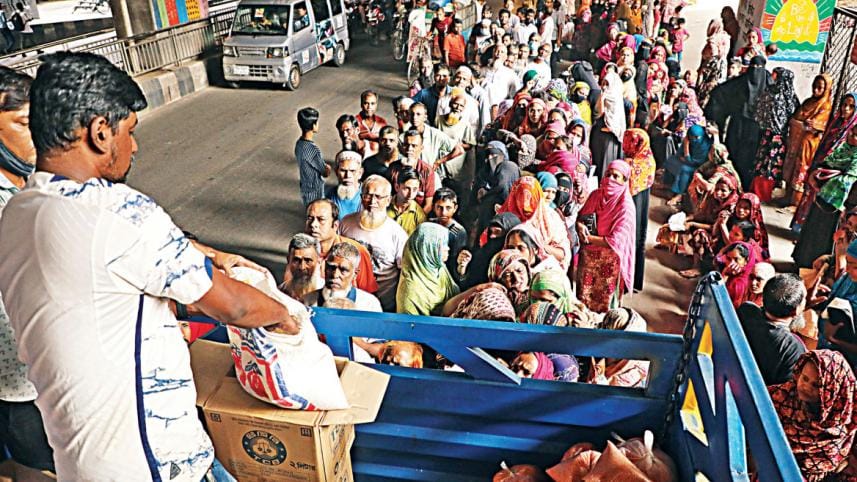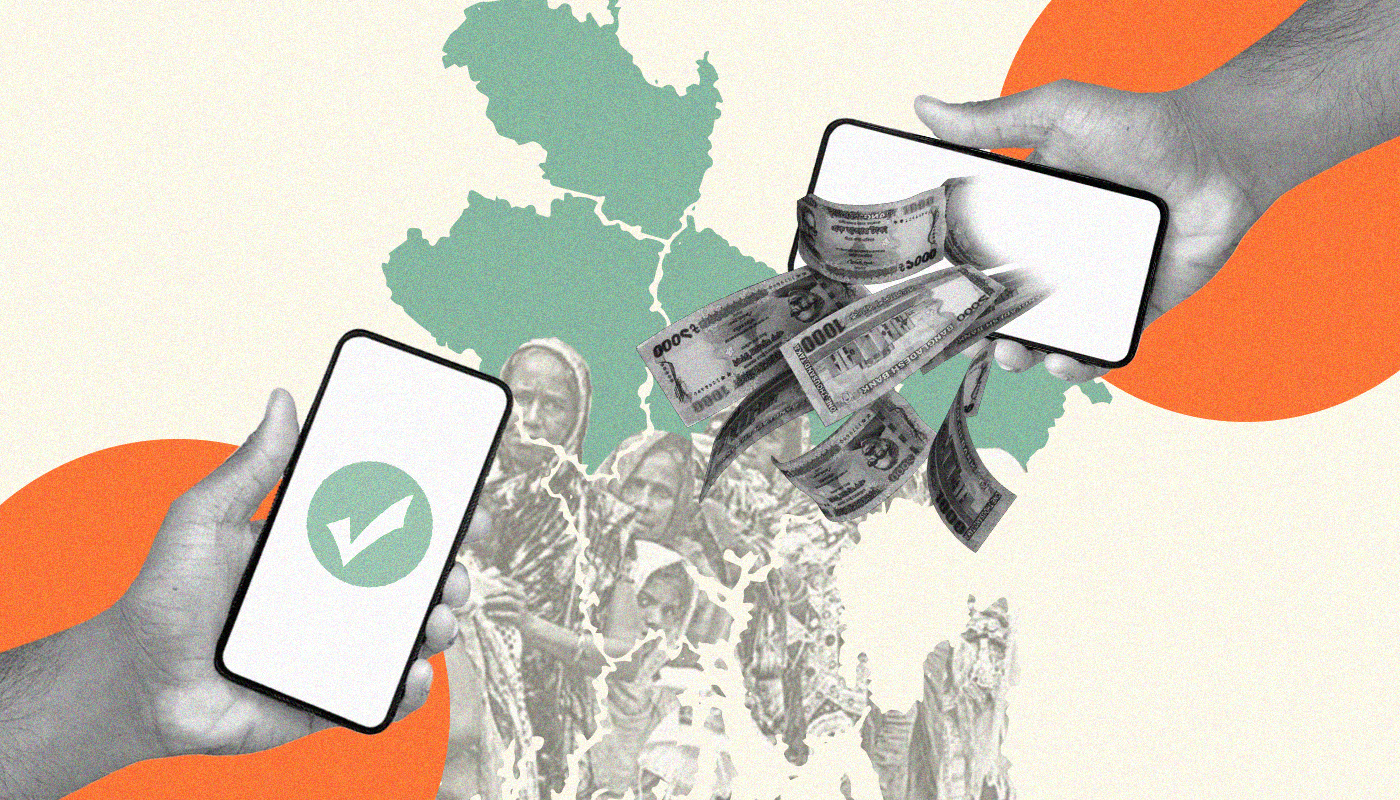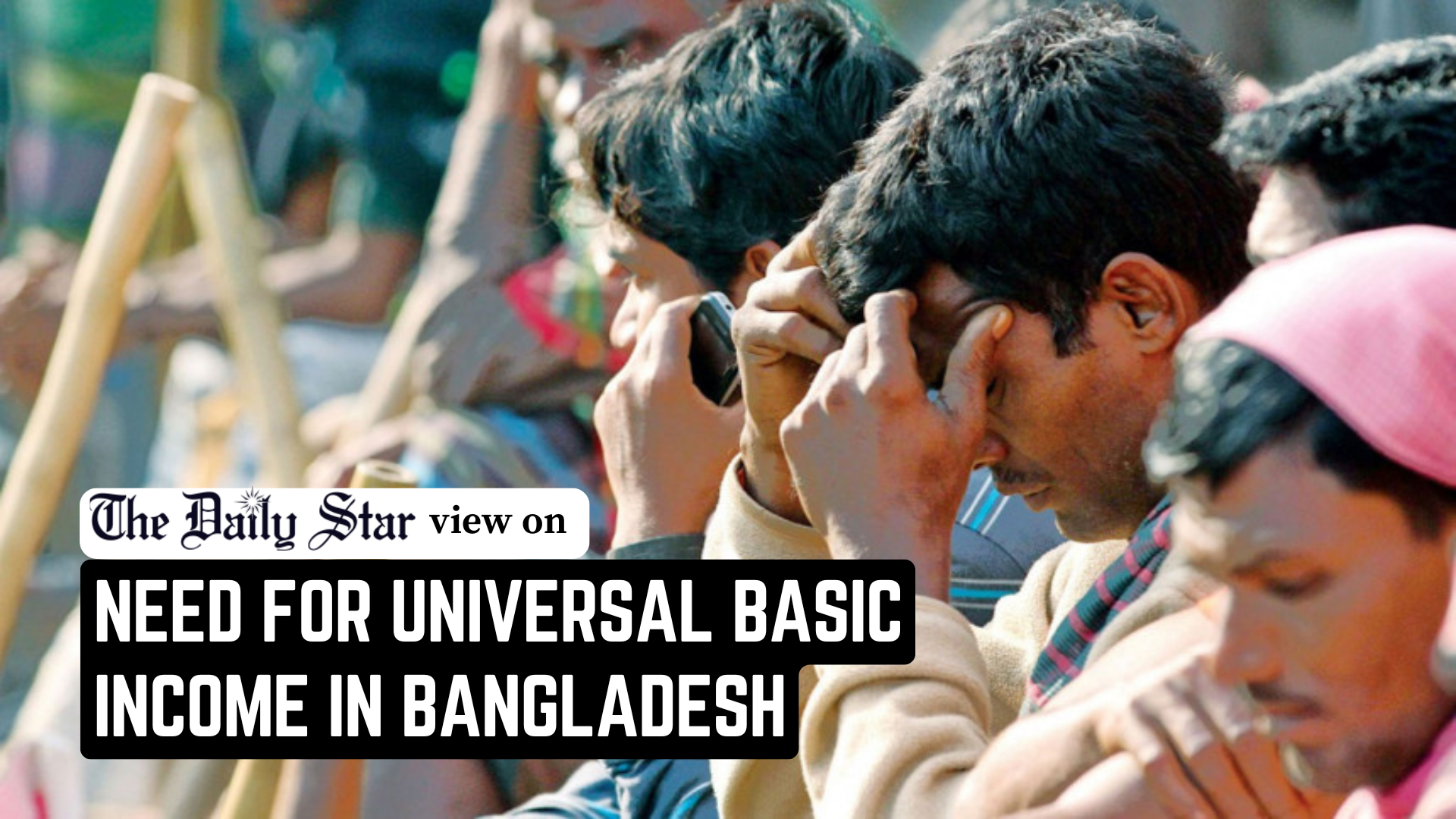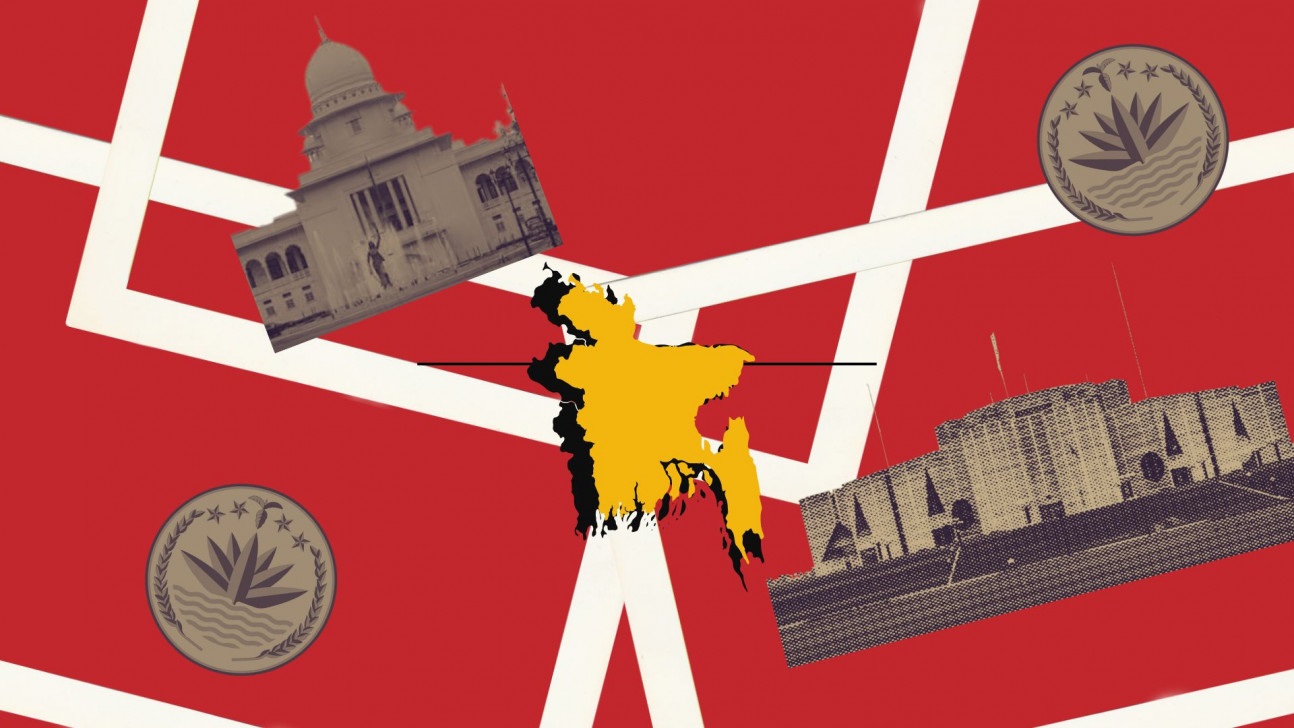The poor need direct support to cope with economic anxieties

Since Covid, everyday economic anxiety leading to a pessimistic mood has been a reality in Bangladesh. After the July-August uprising, there was a somewhat euphoric mood upswing, but it was short-lived because the economic lives of the majority have not been improving. This calls for urgent and direct action.
The negative economic outlook and the positive political expectations together produce a prognosis for the future, in which a virtuous cycle of political hope can create the conditions, ambitions, and appetite for public-private investment in urgent and direct actions. This can steer the nation towards greater stability and patience for critical reform that will leave a lasting framework to build a people-centric democracy for Bangladesh.
I want to reflect on this economic and political dynamic that emerged from the latest BRAC Institute of Governance and Development (BIGD) national pulse survey conducted with 4,158 adult women and men. It is a longitudinal survey that BIGD has been conducting in partnership with The Asia Foundation (TAF) since 2019. The survey is also part of BIGD's Rapid Research Response (RRR 2024) initiative, the initial phase of which is taking place between August '24 and February '25. To that effect, two opinion surveys have been conducted so far over the phone—one in August and the other in October.
The urgency is clear: People are tired of coping on their own since Covid. They have exhausted their capacity of resilience where they had to rely primarily on individual, family, and informal support since state support has been too little too late. Therefore, there is a need for large-scale social protection programmes that can enhance the productive capacity of the poor and the vulnerable to break out of the trap of poverty and distress. These social protection programmes are different from the ones we currently have which target protecting consumption against shocks or provide annuities conditional on intersectional vulnerabilities such as poverty and old age. While we need to improve and expand the existing programmes, we also need a new class of poverty trap-busting productive social protection programme.
The latest survey finds that the economic mood in the country took a reverse swing: 60 percent people responded positively to the question on the overall economic direction of the country in the August 2024 survey which dropped to 43 percent in the October survey. The overall mood went from a positive majority to a negative one. The economic mood in previous surveys was also mostly negative—the positive economic outlook response was only 25 percent in 2022.
Our data shows economic pressures and polycrisis have been growing especially since Covid. Food price inflation remains unabated. Real wages have been stagnant and unemployment and precarious employment have been on the rise. Almost half of the non-poor are vulnerable to falling into poverty as per the latest World Bank Bangladesh analysis. The White Paper Bangladesh 2024 reports based on the 2022 HIES simulation that an additional 20 million non-poor are at risk of joining the ranks of the poor if they fail to work for just two days a month.
The political upswing in mood however is on balance positive. The positive response to the political direction was 71 percent in the August 2024 survey, which declined to 56 percent in October. However, it is still positive. The persistence of the predominantly positive response to the political future of the country is in sharp contrast to what we find in earlier surveys. In 2022, only 39 percent responded positively to this question which reflects a negative political outlook mood on balance.
The reason for the positive political mood is obvious: the expectation of free and fair elections on the horizon. In Bangladesh, democracy has primarily been about electoral choice. That is what gives people hope. The lack of electoral choice had created a sense of despair, hopelessness, and being taken for granted. That is on the mend. Such political positivity can lead to mechanisms for consequential and deliberative democratic practices and culture.
However, not all is well. Our analysis of optimism, when we combine the economic and political direction of the country, implies a downward trend. This is important because people, for the most part, don't think of the future as compartmentalised but form a general opinion based on multiple factors. In the August 2024 survey, we found that 68 percent were positive in both directions, which declined to 37 percent in the October 2024 survey. Conversely, combined pessimism is growing—in August 2024, 13 percent of the respondents were doubly pessimistic, which now stands at double that figure.
We have a narrow window of opportunity. We need to do some real work to balance the political and the economic aspirations, both in terms of immediate macro matters and the everyday lives of the poor and the vulnerable. The dynamics are shifty and can go either way; we can try and stave off the increasing time pressure by taking urgent and direct steps to make a meaningful impact which will sustain the political optimism and allow the time needed for critical economic reforms.
One such impactful reform would be in the realm of social protection. The ultra-poor graduation programme that BRAC developed in 2002 which helped the poor break out of the poverty trap and increase their chances of sustained graduation out of poverty can be considered as a model. If we can design and launch a nationwide programme of productive social protection quickly and effectively, we may be able to take advantage of the narrow window I speak of. In turn, we can also innovate mechanisms of social accountability and partnership, as government-led programmes must, which can be replicated across other domains of public service delivery.
If the focus is only on indirect approaches to tackling the microeconomic pain of the majority with macroeconomic adjustments and reform, however important they are, we risk further deepening of distress among the bottom half. If our vulnerable citizens fail to feel real relief and respite in their everyday economic lives quickly, the enduring political optimism may turn awry, creating increasing time pressure and narrowing opportunities for meaningful reforms. That would be a brutal betrayal of the courage and sacrifice of the many young people who gave their lives to create this chance to rebuild a different Bangladesh.
Let's not squander this chance away.
Imran Matin is a development economist. He is currently the Executive Director of BIGD, an applied social science research and teaching institute of BRAC University focusing on governance and development.
Views expressed in this article are the author's own.
Follow The Daily Star Opinion on Facebook for the latest opinions, commentaries and analyses by experts and professionals. To contribute your article or letter to The Daily Star Opinion, see our guidelines for submission.



 For all latest news, follow The Daily Star's Google News channel.
For all latest news, follow The Daily Star's Google News channel. 


Comments